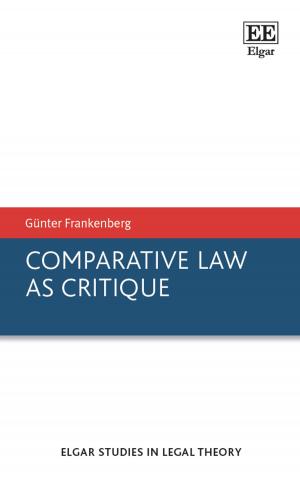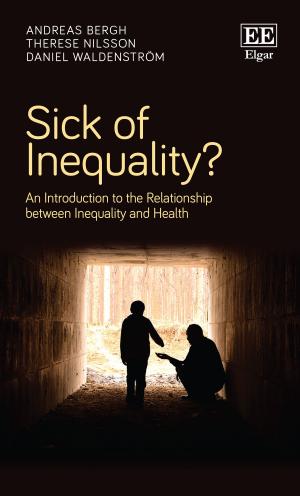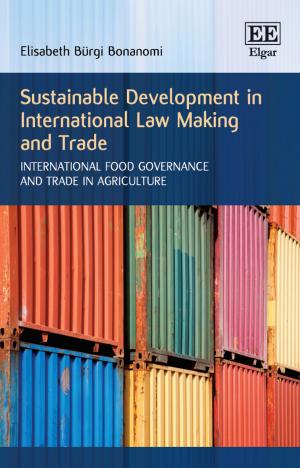Regulatory Worlds
Cultural and Social Perspectives when North Meets South
Nonfiction, Reference & Language, Law, Constitutional, Reference| Author: | Findlay, M., Wei, L.S. | ISBN: | 9781783470310 |
| Publisher: | Edward Elgar Publishing | Publication: | December 15, 2009 |
| Imprint: | Language: | English |
| Author: | Findlay, M., Wei, L.S. |
| ISBN: | 9781783470310 |
| Publisher: | Edward Elgar Publishing |
| Publication: | December 15, 2009 |
| Imprint: | |
| Language: | English |
This ambitious book takes up the grand challenge to design regulatory thinking for a global future beyond wealth and growth, and towards social sustainability. Assuming a ‘South World’ perspective on market regulation and social sustainability, the authors present the options and possibilities for radically repositioning regulatory principle. The analysis of intersections between the market economies of the South and North reconsiders fundamental regulatory relationships and outcomes motivated by sustainability rather than individual wealth creation and economic growth models. The book aims to return economy to society at a critical global juncture, demanding new and creative regulatory intervention outside the regulatory state model. Along with new perspectives on regulation, the analysis offers a better understanding of the problematic future of global regulation by revealing the different reasons for fragmentation within and between very different regulatory spaces.Students of social development and scholars researching market economics and the global crisis will find this book to be a valuable and challenging resource. Policy makers and readers interested in law and regulation will also benefit from the thoughtful discussion presented in this volume.
This ambitious book takes up the grand challenge to design regulatory thinking for a global future beyond wealth and growth, and towards social sustainability. Assuming a ‘South World’ perspective on market regulation and social sustainability, the authors present the options and possibilities for radically repositioning regulatory principle. The analysis of intersections between the market economies of the South and North reconsiders fundamental regulatory relationships and outcomes motivated by sustainability rather than individual wealth creation and economic growth models. The book aims to return economy to society at a critical global juncture, demanding new and creative regulatory intervention outside the regulatory state model. Along with new perspectives on regulation, the analysis offers a better understanding of the problematic future of global regulation by revealing the different reasons for fragmentation within and between very different regulatory spaces.Students of social development and scholars researching market economics and the global crisis will find this book to be a valuable and challenging resource. Policy makers and readers interested in law and regulation will also benefit from the thoughtful discussion presented in this volume.















